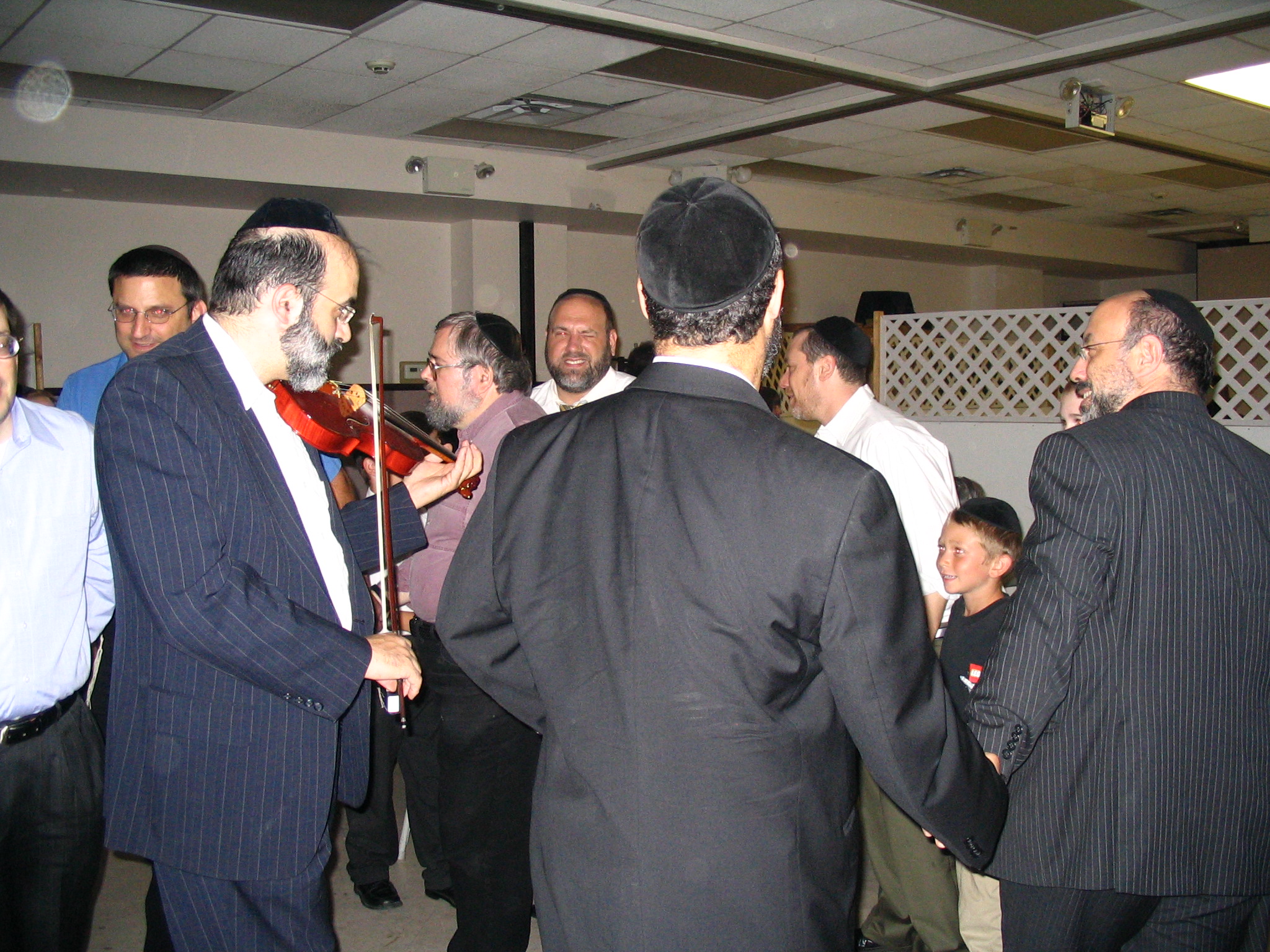Baruch Hashem, on Sunday, December 3 in a sunny loft in midtown Manhattan, I was zoche to take part in something very precious – a kosher chuppah between two irreligious Jews, my sister Nora and her new husband Jeff.
As has been discussed here many times before, family simchas come with shailos. Had Nora and Jeff chosen a Reform or Conservative ceremony, I would not have attended. Baruch Hashem, my sister loves me so much, she was willing to accept a Halachic ceremony, and Baruch Hashem, Jeff loves her so much, he was willing, too. But the biggest bracha of all is not that “they gave in to us,†but that in the process, they connected with their Yiddishkeit and they liked it. Jeff’s happy “Harei at mekudeshet li b’tabaat zu k’dat Moshe v’Yisroel†was an awesome moment. Talk about kavanah! His Hebrew school years never served him better.
Of course, most of the credit goes to the kiruv couple who became their mesader kadushin and kallah teacher. They guided my sister and her chosson with amazing wisdom and sensitivity, knowing when to be mekarev and when to let things slide. I couldn’t have done it. I’m too emotionally involved. (The Rabbi and Rebbetzin prefer to remain anonymous on this public forum, but they are available for other couples. Email me at kh@beingjewish.com.)
One of the “slide†areas was Jeff’s aufruf, held in Jeff’s father’s non-Orthodox shul. Jeff’s father told me that all the major life cycle events – the brissin and the bar mitzvahs – took place in that shul, and he was especially grateful that Jeff’s aufruf should be there, too. It was decidedly non-Traditional; my sister participated and got an aliyah with the chosson, but I don’t see how any Rabbi could possibly deny Jeff’s father the joy of celebrating his own son’s aufruf amongst his friends. You see, Jeff’s father is a Holocaust survivor. He is quite involved in educating young Jews about his experiences and speaks at youth groups regularly because, as he says, “in a few more years, there will be none of us left.†He asked permission to show my eldest son his number, and though my husband and I consented, my son shied away. So instead, I was the one to listen to his recollections. As a teenage boy, he was conscripted into hard labor, and he watched the Nazis line people up and shoot them dead, one after another. He was crying as he described it, and it occurred to me: this is zecher l’churban, a real breaking of the glass. But while on one hand, his memories and experiences temper the simcha, they also enhance it. Baruch Hashem, the Jewish people survived, and a wedding, of all celebrations, is a promise of our future.
Admittedly, the mixed dancing made for a sticky situation. After having insisted on a kosher chuppah and kosher catering, I felt it would have been too much of an imposition to insist on separate dancing also. After all, the kosher chuppah was performed so that Nora and Jeff could be married k’das Moshe v’Yisroel, which is to their benefit. Kosher catering – well, that’s a snap in New York City. But I couldn’t see depriving Jeff’s family of mixed dancing just because I can’t do it and my husband can’t see it.
While the wedding was in the planning stages, the mixed dancing compromise was probably the shailah that I discussed most with my own Rov. My “frummer than thou†issues popped up then, too, not so much with the Rov but with my friends. One BT friend didn’t bring her kids to her sister’s wedding specifically because of the mixed dancing. “Their neshamos can’t handle it,†she said. My very Chassidishe FFB neighbor advised me to speak to a chinuch expert for the very same reason. Well, I can’t be such a purist. My kids are very close to my sister, and they were excited about her wedding. Yes, they are far more exposed to outside influences than their schoolmates, but that’s just the slippery slope we BTs have to traverse.
Baruch Hashem, the layout of the hall worked in our favor. My husband and the kids sat in a place where they did not have to view any of the dancing. As for me, Nora and Jeff kindly asked that the first hora be in separate circles of men and women, so I sort of stepped-walked my way around the women’s circle. I did pull my sister aside for a private dance, and though I tried, I did not entirely escape the view of the men. But my sister told me it was one of her favorite moments of the wedding. May Hashem forgive me for that.
As to how to negotiate such simchas within your own families, I don’t feel I can offer much advice. The credit goes to Nora and Jeff for being open-minded enough to consider a Halachic ceremony and to the special Rabbi and Rebbetzin for striking a balance which made everybody happy. But I do have one idea, and we may just be the crowd to pull it off. I’m sure that many of us have single, freieh Jewish friends and relatives. Why don’t we pool our resources and add making shidduchim to the missions of Beyond BT? I know a very sweet woman of 36 or 37 who needs a nice, intelligent guy. Email me if you know anyone.
May Hashem continue to bring Yidden together for all kinds of simchas.

